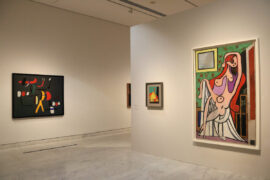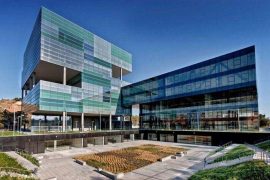[dropcap letter=”I”]
n the municipal elections this May, voters will not only have to choose a political party for the city government, but also what model of city they want to inhabit. Some may impose the dangerous dialectic of having to decide between the city of the pharaohs or that of the slaves who built the pyramids. Others will tell the citizens that their votes will decide whether the city government will be that of the inward Catalonia or in favour of cosmopolitanism. All the electoral offers will propose large constructions, many of them linked to ideals that escape the management of a city subject to problems that have nothing to do with the politics of exceptional causes. However, every proposal is condemned to talk about Barcelona and to face its challenges. The most interesting thing is to acknowledge that Barcelona is still capable of creating a strong civic activity with social platforms that defend the technological city, the tourist city, the business city or the defence of animals. No party, regardless of how much it is trapped in the Catalan conflict in relation to Spain, can avoid a series of petitions that I will detail below:
- Establishing an action program capable of combining policies in favour of economic dynamism to address and correct social inequality, under the ideal of growing together and breaking with the business city that only benefits a few.
- Linking the technological city to the creative city, where talent is displayed in the urban scene. Establishing an economic dynamic that situates young people as a factor of change and regeneration of the economic and social offer of the city.
- Promoting a sustainable tourism that avoids the growing anger against tourism. According to the surveys, 19% of people in Barcelona are concerned that the city model is determined by tourism flows, and not by a policy that guarantees quality and responsible tourism within the city.
- Culture as a factor of change in the city. Barcelona has a strong network of institutions and artistic manifestations that need to be put at the service of creation, establishing greater collaboration among them to forge cultural singularities capable of interesting not only the world but also its citizens.
- Environmental sustainability and mobility. The city is not only expressed by its territory but by the speed at which the inhabitants develop themselves. Offering greater autonomy in public transport that guarantees that the automobile is only a second option.
- Moving towards a Greater Barcelona, understood as a metropolitan area, where the important challenges are faced by harmonizing the interests of the different municipalities but without getting caught up in political inaction.
- Consolidating the security and compliance with municipal regulations to restore in some cases the municipal authority against the requests of groups that hijack the city.
- Investing on an open city, connected to the world, leaving behind the image of a fortified city that fears change.
- Empowering liveability; working to make living in the city worth, means moving forward to offer the best medical care, infrastructure, education, safety, and culture.
- Strengthening the cooperation between the institutions, the Provincial Council, the City Council, the Generalitat and the Spanish State in order to have the capacity to face Barcelona’s challenges with liability.
These are the proposals, ideas, challenges and needs that are being discussed in different forums in recent months, and that show to what extent the vote in the current municipal elections will decide, not only who governs the city, but what model of city is going to be built.




















